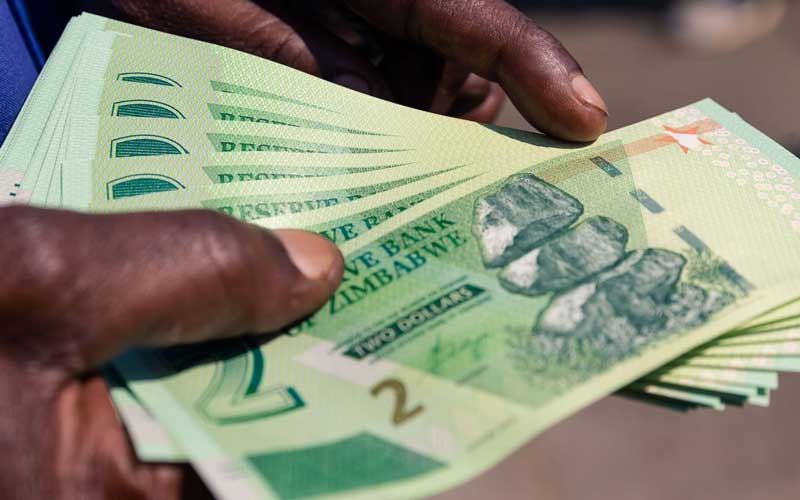
The Zimbabwe National Statistics Agency (ZimStats) recently published its monthly bulletin on the Consumer Price Index for October 2022.
The office revealed that the year-on-year inflation rate for the month of October 2022 stood at 268,8%, down from 280,4% in the previous month. In addition, the month-on-month inflation rate shed 0,3 percentage points from 3,5% to 3,2%. Piggy expected the slight decline given several measures taken by the government to curtail money supply growth such as.
Suspending payment to government contractors,
Raising the bank policy rate to 200% to limit money creation and (
The introduction of gold coins to mop up ZWL liquidity.
An important highlight is that price-level risks in Zimbabwe remain elevated as domestic headline inflation has remained in the triple-digits. External factors have also impacted negatively on import prices of raw materials, food, fertilisers, and liquid fuels.
Further, domestic adverse inflation expectations have also been reflected through forward pricing by economic agents. In the outlook, downside risks to inflation and exchange rate stability include;
Continued geo-political tensions that are driving the surge in international food and oil prices (imported inflation),
- Thousands flee economic mess
- Disband RBZ: Hanke
- 40 000 enumerators threaten legal action
- Zimbos don't want to burden SA's health system
Keep Reading
Adverse inflation expectations and
Electioneering-driven government expenditures.
An analysis of inflation developments in Zimbabwe clearly reveals that a lack of confidence in the ZWL is a big factor in terms of fostering macro-economic stability. One suggestion that has been proffered relates to establishing a currency board.
This is basically a very simple, strictly rule-bound institution for supplying an economy with a domestic currency. Under a currency board, the management of the exchange rate and money supply are given to an independent monetary authority that backs all units of domestic currency in circulation with foreign currency (100% reserve requirement).
The point here is that a conventional central bank can print money at will, but a currency board must back additional units of currency with foreign currency. Generally, currency boards are known for keeping inflation under control as they;
- Offer stable exchange rates,
- Promote trade and investment and
- Restrict government actions.
- Features of a currency board
The main reason for countries to contemplate a currency board is to pursue a visible anti-inflationary policy. A typical currency board will have the following features;
Fixed Exchange Rate: The value of the domestic currency is strictly tied to the value of an anchor currency at a fixed rate of exchange. Recent currency boards have chosen the US dollar or the euro as an anchor.
Backing Requirement: A typical currency board is required to fully back the monetary base with foreign exchange reserves. Foreign exchange reserves held by the board must always be sufficient to, at least theoretically, convert all notes and coins in circulation, as well as all domestic currency deposits held with the currency board, into the anchor currency at the fixed exchange rate. Domestic currency can only be issued in exchange for the respective amount of foreign exchange.
Unrestricted convertibility: A typical currency board is a passive monetary institution. It exchanges the anchor currency into domestic currency and vice versa on demand and unlimited, so that the supply of base money always matches the demand for it.
Legal Commitment: The rules of the currency board such as the choice of an anchor currency and the exchange rate, the backing requirement, and the convertibility undertaking are usually set down in law.
This practice serves to prevent the currency board from becoming subject to short-term changes and to signal stability and reliability to economic agents.
A sound legal basis is essential, because a currency board arrangement derives much of its credibility from the changes required in the central bank law concerning exchange rate adjustments.
Overall, a currency board provides the credibility or confidence factor given that financial markets and the public at large can be assured that every domestic currency bill is backed by an equivalent amount of foreign currency in the official coffers.
Therefore, economic credibility, low inflation and lower interest rates are the immediately obvious advantages of a currency board.
However, while currency boards can boost confidence in the local currency, they may be limiting, especially for countries that have weak banking systems or are prone to economic shocks.
With a currency board in place, the central bank can no longer be an unlimited lender of last resort to banks in financial trouble.
Another cost could be the national authorities' inability to use financial policies, such as adjustments of domestic interest or exchange rates, to stimulate the economy.
By pegging the domestic currency to a foreign currency, the currency board imports much of that foreign country's monetary policy.
In conclusion, countries that have taken the currency board route include Argentina, Bulgaria, Estonia, Hong Kong, and Lithuania.
In the case of Zimbabwe, a key decision that needs to be made is choosing the peg or anchor currency.
Piggy has been involved in several discussions and debates on various platforms on whether Zimbabwe should adopt the South African Rand (ZAR) given arguments around regional economic integration and competitiveness.
That said, based on our assessments of the global economy, geopolitical risks, and country-specific issues such as low productivity and informalisation, price level risks remain elevated in Zimbabwe.
The upcoming elections are also a big factor given that they could trigger excessive government expenditures.
On the positive side, a ZWL liquidity squeeze has created bargain opportunities on the stock market.
Piggy recommends investors to take long-term positions in well-managed blue-chip names like Delta Corporation, Econet Wireless Zimbabwe, Innscor Africa, Meikles Limited and Hippo Valley Estates. Get tidbits on the stock market by joining a PiggyBankAdvisor WhatsApp Group (+263 78 358 4745).
Matsika is the head of research at Morgan & Co, and founder of piggybankadvisor.com. — batanai@morganzim.com/ batanai@piggybankadvisor.com or +263 783 584 745.






